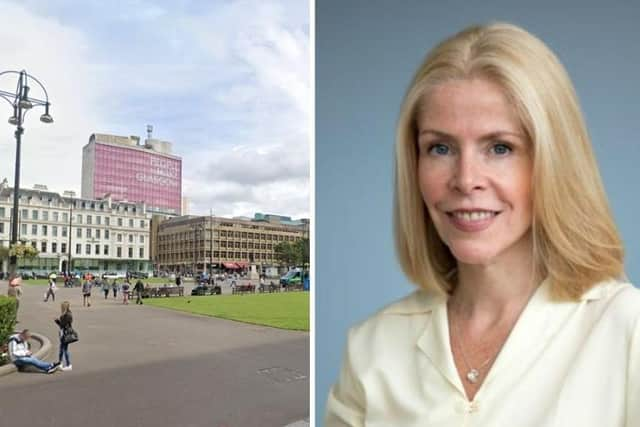Coronravirus in Scotland: Public health expert Professor Linda Bauld warns of difficulty of increasing restrictions in high case rate areas including Midlothian
Linda Bauld professor of public health at the University of Edinburgh, spoke about the reasons behind Glasgow being the sole council area in Scotland remaining in level three of the Scottish Government’s five-tier restriction system.
First Minister Nicola Sturgeon announced on Friday the local authority would remain at the higher level for at least another week due to an “uncomfortably high” level of cases amid an outbreak driven by the April 02 variant – previously known as the Indian variant – of the virus.
Advertisement
Hide AdAdvertisement
Hide AdShe said a decision would be made by Wednesday at the latest on whether the city can move to level two next Saturday.
People in the city are not able to meet other households indoors in their homes and there are stricter restrictions on hospitality, including a ban on selling alcohol indoors.
Non-essential travel in and out of the city is prohibited.
Speaking on BBC Radio Scotland’s Good Morning Scotland programme, Prof Bauld said the Scottish Government has “stalled” Glasgow in level three due to concern about whether rising cases are leading to more people in hospital.
“They are just hanging on a little bit longer to make sure they can be confident that cases are not translating to more people in hospital,” she said.


“In contrast, there are worrying signs in parts of Edinburgh – Silverknowes and Davidson’s Mains.
“In Renfrewshire and Midlothian there are high cases but because they are already in level two to then reverse that, policy-wise, would be more difficult.”
Speaking on the same programme, Stephen Reicher from the University of St Andrews and a member of the Sage sub-committee advising on behavioural science, said caution is the correct approach over the Glasgow outbreak.
He said: “We’ll find out within a week or two exactly how serious it is. If it’s very bad, we’ll learn in a week or so. If it’s bad, we’ll learn in a couple of weeks.
Advertisement
Hide AdAdvertisement
Hide Ad“I think it’s worth pausing for a moment or two rather than to have to face the possibility of going back to the really dark days of January and February.”
A message from the Editor:
Thank you for reading this article. We're more reliant on your support than ever as the shift in consumer habits brought about by coronavirus impacts our advertisers.
If you haven't already, please consider supporting our trusted, fact-checked journalism by taking out a digital subscription.
Comments
Want to join the conversation? Please or to comment on this article.